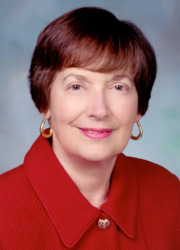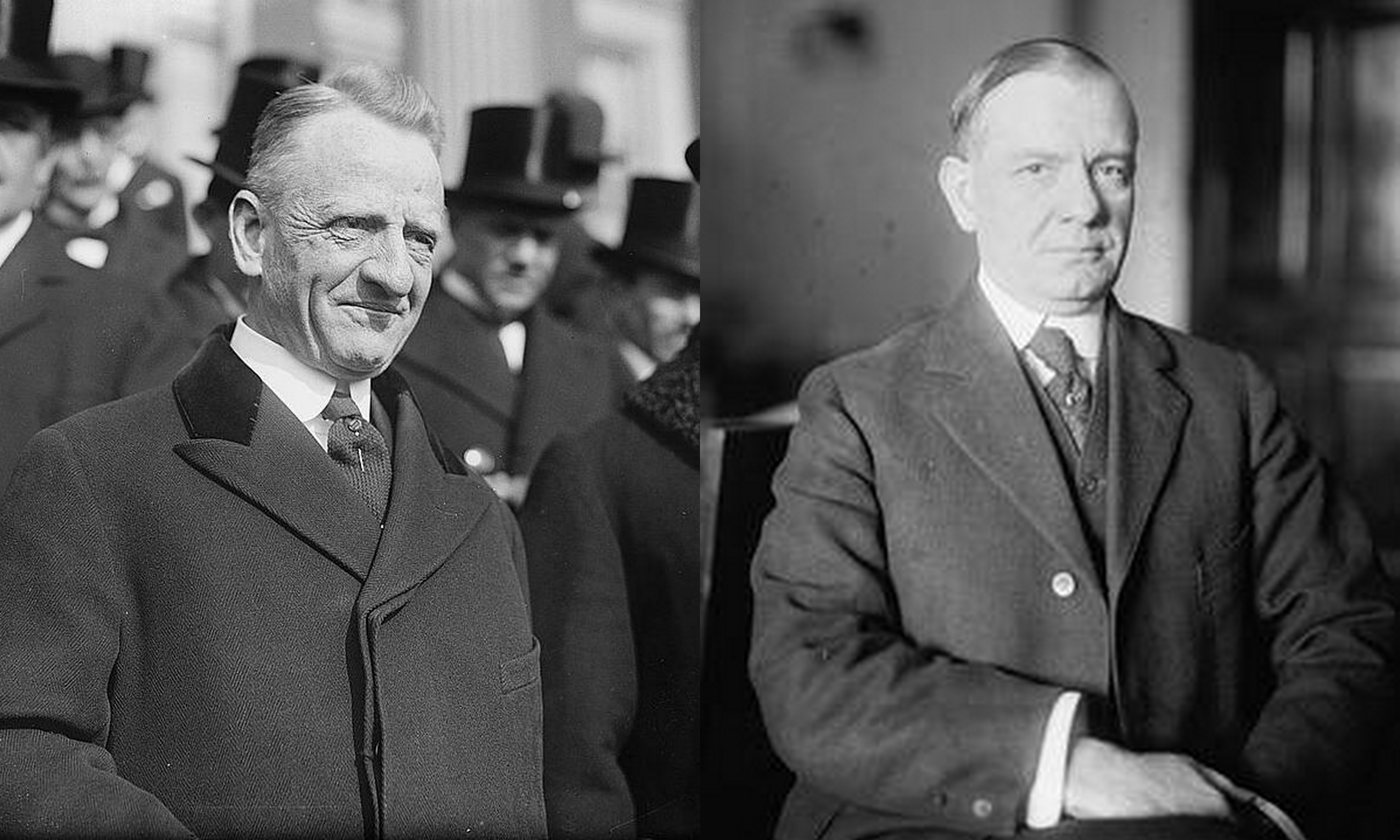|
Wendy Gramm
Wendy Lee Gramm (born January 10, 1945) is an American economist who led the Commodity Futures Trading Commission during the Reagan administration. She is also the wife of former United States Senator Phil Gramm. Gramm has gained notoriety for her role in the Enron scandal. Early life Wendy Lee Gramm was born in Hawaii and is of Korean and Native Hawaiian ancestry. She received a B.A. degree in economics from Wellesley College in 1966 and a Ph.D. in economics from Northwestern University in 1971. In her role at the Mercatus Center, Gramm generally called for deregulation of the energy industry. For eight years, Gramm taught in the Department of Economics at Texas A&M University and later served on the Texas A&M University System Board of Regents. Career Wendy Lee Gramm held several positions in the Reagan administration: executive director of the Presidential Task Force on Regulatory Relief, head of the White House Office of Management and Budget's regulatory review office, ... [...More Info...] [...Related Items...] OR: [Wikipedia] [Google] [Baidu] |
Ronald Reagan
Ronald Wilson Reagan (February 6, 1911 – June 5, 2004) was an American politician and actor who served as the 40th president of the United States from 1981 to 1989. He was a member of the Republican Party (United States), Republican Party and became an important figure in the American conservative movement. Presidency of Ronald Reagan, His presidency is known as the Reagan era. Born in Illinois, Reagan graduated from Eureka College in 1932 and was hired the next year as a sports broadcaster in Iowa. In 1937, he moved to California where he became a well-known film actor. During his acting career, Reagan was president of the Screen Actors Guild twice from 1947 to 1952 and from 1959 to 1960. In the 1950s, he hosted ''General Electric Theater'' and worked as a motivational speaker for General Electric. During the 1964 United States presidential election, 1964 presidential election, Reagan's "A Time for Choosing" speech launched his rise as a leading conservative figure. After b ... [...More Info...] [...Related Items...] OR: [Wikipedia] [Google] [Baidu] |
Energy Policy Of The United States
The energy policy of the United States is determined by federal, state, and local entities. It addresses issues of energy production, distribution, consumption, and modes of use, such as building codes, mileage standards, and commuting policies. Energy policy may be addressed via legislation, regulation, court decisions, public participation, and other techniques. Federal List of United States energy acts, energy policy acts were passed in 1974, 1992, 2005, 2007, 2008, 2009, 2020, 2021, and 2022, although energy-related policies have appeared in many other bills. State and local energy policies typically relate to efficiency standards and/or transportation. Federal energy policies since the 1973 oil crisis have been criticized for having an alleged crisis-mentality, promoting expensive quick fixes and single-shot solutions that ignore market and technology realities. United States#Demographics, Americans constitute less than 5% of the world population, world's population bu ... [...More Info...] [...Related Items...] OR: [Wikipedia] [Google] [Baidu] |
Commodity Futures Modernization Act Of 2000
The Commodity Futures Modernization Act of 2000 (CFMA) is a United States federal law that ensures that Over-the-counter (finance), over-the-counter (OTC) Derivative (finance), derivatives remained Financial regulation, unregulated. Commodity Exchange Act, The Commodity Futures Trading Commission (CFTC) had desired to have "functional regulation" of the market, but the CFMA rejected this approach. Instead, the CFTC continued to do "entity-based supervision of OTC derivatives dealers". The CFMA's handling of OTC derivatives, such as credit default swaps, has become controversial, as thesderivativesplayed a major role in the 2008 financial crisis and the Great Recession. The Commodity Futures Modernization Act (CFMA) of 2000 is a landmark piece of legislation in the United States that significantly altered the regulation of financial markets. Signed into law on December 21, 2000, the CFMA had several major impacts on the trading of derivatives, Futures contract, futures, and other f ... [...More Info...] [...Related Items...] OR: [Wikipedia] [Google] [Baidu] |
2000 United States Presidential Election
United States presidential election, Presidential elections were held in the United States on November 7, 2000. Republican Party (United States), Republican Governor George W. Bush of Texas, the eldest son of 41st President George H. W. Bush, and former United States Secretary of Defense, Secretary of Defense Dick Cheney narrowly defeated incumbent Democratic Party (United States), Democratic Vice President Al Gore and United States Senate, Senator Joe Lieberman. It was the fourth of five U.S. presidential elections, and the first since 1888 United States presidential election, 1888, in which the List of United States presidential elections in which the winner lost the popular vote, winning candidate lost the popular vote, and is considered one of the closest U.S. presidential elections in history, with long-standing controversy about the result. Incumbent Democratic President Bill Clinton was ineligible to seek a third term because of term limits established by the Twenty-sec ... [...More Info...] [...Related Items...] OR: [Wikipedia] [Google] [Baidu] |
Glass–Steagall Legislation
The Glass–Steagall legislation describes four provisions of the United States Banking Act of 1933 separating commercial and investment banking.. Wilmarth 1990, p. 1161. The article 1933 Banking Act describes the entire law, including the legislative history of the provisions covered. As with the Glass–Steagall Act of 1932, the common name comes from the names of the Congressional sponsors, Senator Carter Glass and Representative Henry B. Steagall. The separation of commercial and investment banking prevented securities firms and investment banks from taking deposits and commercial Federal Reserve member banks from: * dealing in non-governmental securities for customers; * investing in non-investment grade securities for themselves; * underwriting or distributing non-governmental securities; * affiliating (or sharing employees) with companies involved in such activities. Starting in the early 1960s, federal banking regulators' interpretations of the Act permitted commercia ... [...More Info...] [...Related Items...] OR: [Wikipedia] [Google] [Baidu] |
Gramm–Leach–Bliley Act
The Gramm–Leach–Bliley Act (GLBA), also known as the Financial Services Modernization Act of 1999, () is an act of the 106th United States Congress (1999–2001). It repealed part of the Glass–Steagall Act of 1933, removing barriers in the market among banking companies, securities companies, and insurance companies that prohibited any one institution from acting as any combination of an investment bank, a commercial bank, and an insurance company. With the passage of the Gramm– Leach– Bliley Act, commercial banks, investment banks, securities firms, and insurance companies were allowed to consolidate. Furthermore, it failed to give to the SEC or any other financial regulatory agency the authority to regulate large investment bank holding companies. The legislation was signed into law by President Bill Clinton. A year before the law was passed, Citicorp, a commercial bank holding company, merged with the insurance company Travelers Group in 1998 to form the cong ... [...More Info...] [...Related Items...] OR: [Wikipedia] [Google] [Baidu] |
Public Citizen
Public Citizen is an American non-profit, Progressivism in the United States, progressive consumer rights advocacy group, and think tank based in Washington, D.C. It was founded in 1971 by the American activist and lawyer Ralph Nader. Lobbying efforts Public Citizen advocates before all three branches of the United States federal government. Its five divisions include Congress Watch; Energy; Global Trade Watch; the Health Research Group; and Public Citizen Litigation Group, a nationally prominent public interest law firm founded by Alan Morrison and known for its Supreme Court and appellate practice. Among other issues, Public Citizen has been a public voice on Prescription drug prices in the United States, drug pricing. For example, they advocated for Gilead Sciences to test GS-441524, a cheaper alternative to remdesivir. History In 1968, Nader recruited seven volunteer law students, dubbed "Nader's Raiders" by the Washington press corps, to evaluate the efficacy and operation ... [...More Info...] [...Related Items...] OR: [Wikipedia] [Google] [Baidu] |
1992 United States Presidential Election
The 1992 United States presidential election was the United States presidential election, presidential election, held in the United States, on November 3, 1992. The Democratic Party (United States), Democratic ticket of governor of Arkansas Bill Clinton and Senator from Tennessee Al Gore defeated the Republican Party (United States), Republican ticket of incumbent president George H. W. Bush and vice president Dan Quayle and the Independent politician, independent ticket of businessman Ross Perot and vice admiral James Stockdale. The election marked the end of 12 consecutive years of Republican rule of the White House, as well as the end of a longer period of Republican dominance in American presidential politics that began in 1968 United States presidential election, 1968 to 1988 United States presidential election, 1988, with exception only in 1976 United States presidential election, 1976. Bush had alienated many Conservatism in the United States, conservatives in his party ... [...More Info...] [...Related Items...] OR: [Wikipedia] [Google] [Baidu] |
Enron
Enron Corporation was an American Energy development, energy, Commodity, commodities, and services company based in Houston, Texas. It was led by Kenneth Lay and developed in 1985 via a merger between Houston Natural Gas and InterNorth, both relatively small regional companies at the time of the merger. Before its bankruptcy on December 2, 2001, Enron employed approximately 20,600 staff and was a major electricity, natural gas, communications, and pulp and paper industry, pulp and paper company, with claimed revenues of nearly $101 billion during 2000. ''Fortune (magazine), Fortune'' named Enron "America's Most Innovative Company" for six consecutive years. At the end of 2001, it was revealed that Enron's reported financial condition was sustained by an institutionalized, systematic, and creatively planned accounting scandals, accounting fraud, known since as the Enron scandal. Enron became synonymous with willful, institutional fraud and systemic Corporate crime, corruptio ... [...More Info...] [...Related Items...] OR: [Wikipedia] [Google] [Baidu] |
Office Of Information And Regulatory Affairs
The Office of Information and Regulatory Affairs (OIRA ) is a division within the Office of Management and Budget under the Executive Office of the President. OIRA oversees the implementation of government-wide policies in, and reviews draft regulations under, Executive Order 12866, the Paperwork Reduction Act, and the Information Quality Act. Tasks OIRA reviews draft rules that it receives from federal agencies under the three laws noted in the preamble to this article, and develops and oversees the implementation of government-wide policies in the areas of information technology, information policy, privacy, and statistical policy. As one step in the entire rulemaking process (as explained in more detail in United States administrative law), OIRA reviews draft rules and regulations under s:Executive Order 12866, 12866 from 1993. Executive Order 12866 describes OIRA's role in the rulemaking process and directs agencies to follow certain principles, such as consideration of al ... [...More Info...] [...Related Items...] OR: [Wikipedia] [Google] [Baidu] |
Office Of Management And Budget
The Office of Management and Budget (OMB) is the largest office within the Executive Office of the President of the United States (EOP). The office's most prominent function is to produce the president's budget, while it also examines agency programs, policies, and procedures to see whether they comply with the president's policies and coordinates inter-agency policy initiatives. Russell Vought is the current director of the OMB since February 2025. History The Bureau of the Budget, OMB's predecessor, was established in 1921 as a part of the United States Department of the Treasury, Department of the Treasury by the Budget and Accounting Act of 1921, which President Warren G. Harding signed into law. The Bureau of the Budget was moved to the Executive Office of the President of the United States, Executive Office of the President in 1939 and was run by Harold D. Smith during the government's rapid expansion of spending during World War II. James L. Sundquist, a staffer at the B ... [...More Info...] [...Related Items...] OR: [Wikipedia] [Google] [Baidu] |
Federal Trade Commission
The Federal Trade Commission (FTC) is an independent agency of the United States government whose principal mission is the enforcement of civil (non-criminal) United States antitrust law, antitrust law and the promotion of consumer protection. It shares jurisdiction over federal civil antitrust law enforcement with the United States Department of Justice Antitrust Division, Department of Justice Antitrust Division. The agency is headquartered in the Federal Trade Commission Building in Washington, DC. The FTC was established in 1914 by the Federal Trade Commission Act of 1914, Federal Trade Commission Act, which was passed in response to the 19th-century monopolistic trust crisis. Since its inception, the FTC has enforced the provisions of the Clayton Antitrust Act of 1914, Clayton Act, a key U.S. antitrust statute, as well as the provisions of the FTC Act, et seq. Over time, the FTC has been delegated with the enforcement of additional business regulation statutes and has promul ... [...More Info...] [...Related Items...] OR: [Wikipedia] [Google] [Baidu] |






